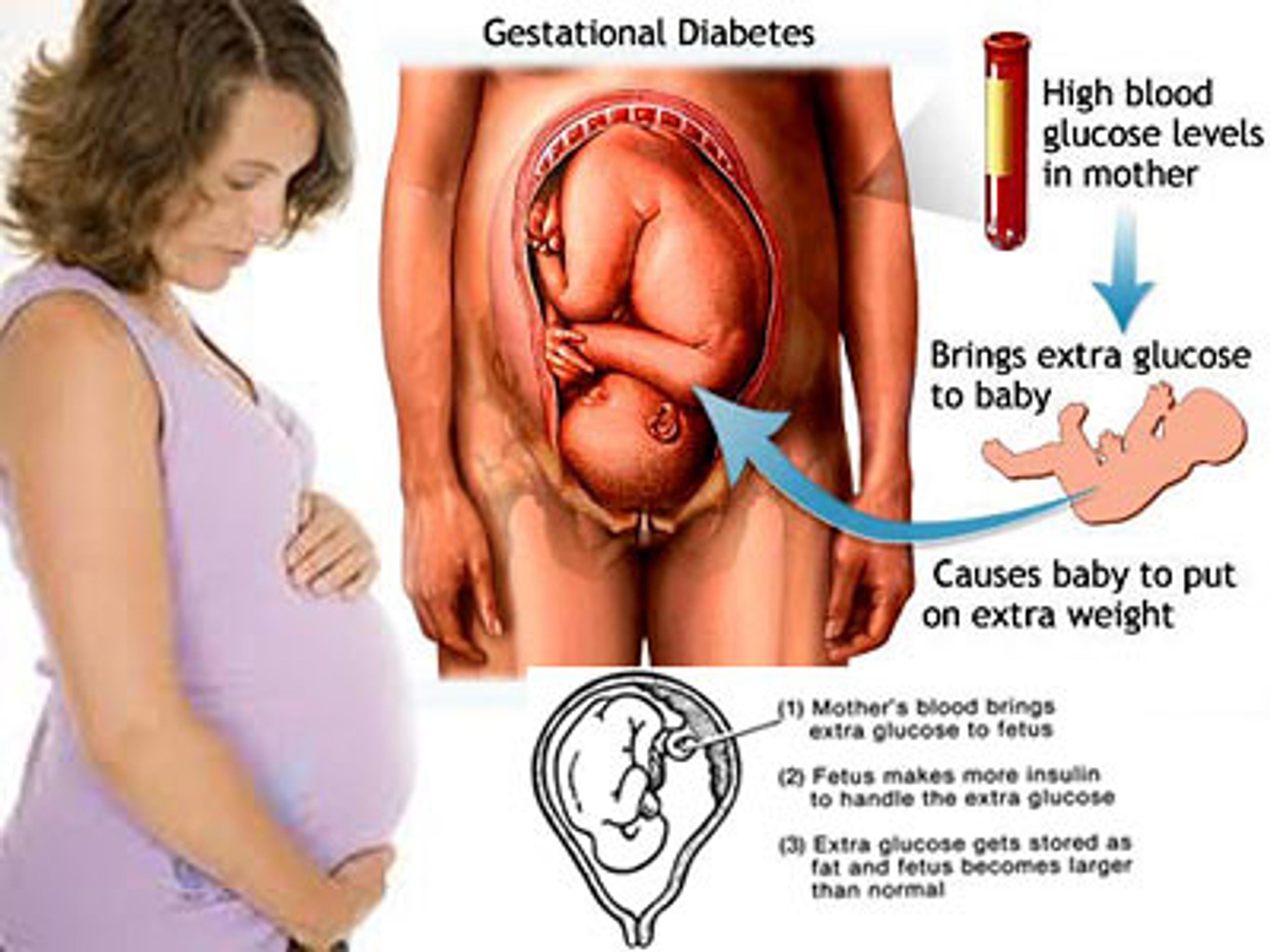Gestational Diabetes Can Happen During Any Pregnancy
Registered Dietician
| 3 min read

Gestational diabetes occurs when a pregnant woman has higher blood sugars during pregnancy. At about 24 to 26 weeks of pregnancy, women have a blood test and/or a 3 hour glucose tolerance test. Gestational diabetes occurs because the pregnant women is unable to either produce enough insulin or use the insulin efficiently, resulting in higher blood sugars. This is usually due to the hormones from pregnancy and some other risk factors may come into play.

Greater Risk for Gestational Diabetes
There are some risk factors that could increase your chances of becoming a gestational diabetic. They include:
- Being older than 25 when you get pregnant
- A family history of diabetes
- Having high blood pressure
- Being overweight before you were pregnant
- Having too much amniotic fluid
- Previously having a baby that weighed greater than 9 pounds or with a birth defect
- Having previous miscarriages or stillbirths
Usually, these higher blood sugars only occur during the pregnancy and then after delivery of the baby, the blood sugars are normal again. This is an important topic to write about because many times people don’t discuss it and it is one of the most common health issues during pregnancy.
My struggle with Gestational Diabetes
I know this personally because I was diagnosed with gestational diabetes, even as a registered dietitian and certified diabetes educator. It actually gave me a lot of insight on what my patients have to deal with when they are living with diabetes, from testing blood sugars four times per day, to counting carbs, eating regularly and staying active. Most of these things I already did, but taking care of yourself for your baby, gives you new insight and focus on how important it is to take care of your body – for you and your baby.
Gestational Diabetes and Your Baby
The main risk for the baby with a mother with gestational diabetes is macrosomia, known as “fat baby.” When a pregnant mom can not produce enough insulin, the baby in the womb gets extra glucose as well and can gain more weight than babies that don’t have a mom with gestational diabetes.
If a pregnant woman can not control her gestational diabetes with proper diet and exercise, medication might be necessary. The key is to test your blood sugars, eat regularly and count your carbohydrates, while keeping your portions in check. Staying as active as possible is also essential for better health for you and the baby. I was able to control my blood sugars with healthy behaviors like these without any medication.
Remember that living a healthy lifestyle is key for better health no matter what, so keep striving for a healthier you.
Photo Credit: Adams999 and A Healthier Michigan





